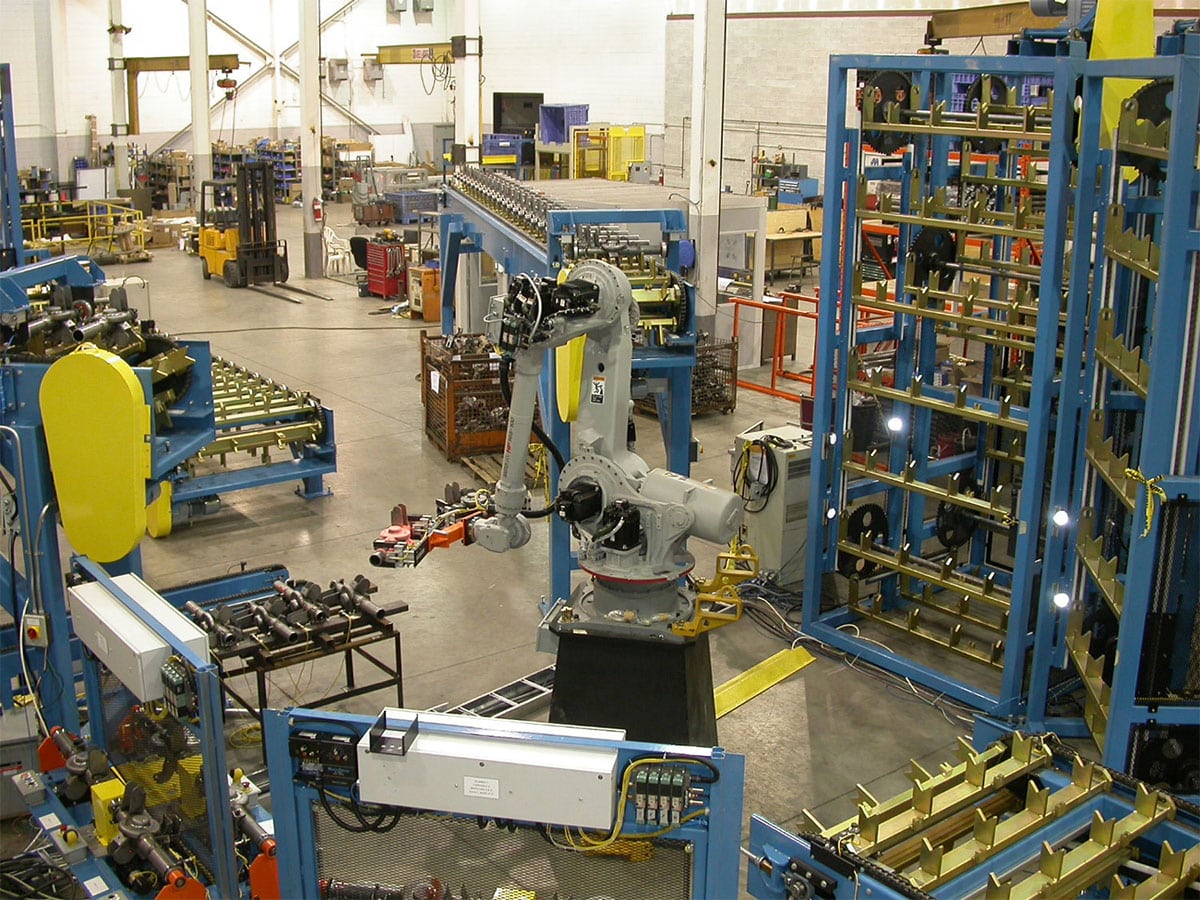In the fast-growing manufacturing sector, robots are essential to bringing innovation and efficiency. The integration of industrial robotics in manufacturing processes has revolutionized the field, offering numerous benefits companies looking to increase efficiency, quality, and competitiveness. Manufacturing robots are expected to play a larger role in shaping the future of manufacturing as the demand for automation solutions grows.

Manufacturing robots, sometimes referred to as industrial robots, are specialized machines that are designed to complete different jobs within the production environment. This can involve welding, painting, assembly, placing and picking, packaging, and more. Industrial robotics is the study and application of robots. It focuses on increasing effectiveness and precision in manufacturing operations.
Automated Solutions Australia is one of the companies on the leading edge. They are specialized in industrial robots that offer flexible automation to manufacturing clients. ASA robotics for manufacturing in industrial settings aim to assist clients gain an edge in the market by increasing their efficiency and quality. ASA industrial robotic solutions are highly sought-after by firms in a wide range of industries, including electronic, pharmaceuticals and automotive.
Industrial robots have advantages that can be numerous. One of the main benefits is increased efficiency and productivity. Industrial robots are able to perform repetitive tasks with accuracy and consistency, resulting in greater output rates and lower cycles. This increases overall productivity and allows companies to quickly respond to consumer demands.
In addition, industrial robots enhance quality control in manufacturing processes. Through executing tasks with precision and reliability, these machines reduce the chance of errors and produce better-quality products. The result is a higher degree of satisfaction with the customer and a better reputation for the company.
In addition to efficiency and quality, industrial robotics also can provide cost-saving advantages. While the initial investment in manufacturing robots may seem substantial, the long-term cost savings are significant. Through streamlining processes in production and reducing the demand for manual labor, businesses can lower operational costs and get a fast return on investment. Industrial robots are able to work 24 hours a day and maximize the utilization of resources, and reduces costs of production per unit.
Industrial robots can have an impact positive on the work environment. These robots are designed to reduce noise, creating a quieter and more comfortable work environment for employees. Furthermore, their accuracy and speed contribute to creating a safer work environment in reducing the likelihood of injuries and accidents that can be caused with manual labor.
The integration of industrial robots can play a significant role in job creation and the future of work. Industrial robots may provide new opportunities for employment, despite concerns that automation will take over humans. This is the case for roles in robotic programming, maintenance, oversight and supervision, as well the development of innovative technology to aid in the production of robots.
Businesses in all sectors benefit from this innovative technology as the manufacturing industry embraces the potential of industrial robotics. With its ability to enhance efficiency, quality, and cost-effectiveness, industrial robotics is reshaping the way products are manufactured and setting new standards for high-quality products in the market.
In the end, robots for manufacturing are a new paradigm in manufacturing. The advanced technology is enabling companies to achieve unprecedented levels of efficiency, precision and competitiveness. Industrial robots will play a key role in the future as demand for automation continues to increase. They can help determine the future of manufacturing as well as drive the pace of innovation.